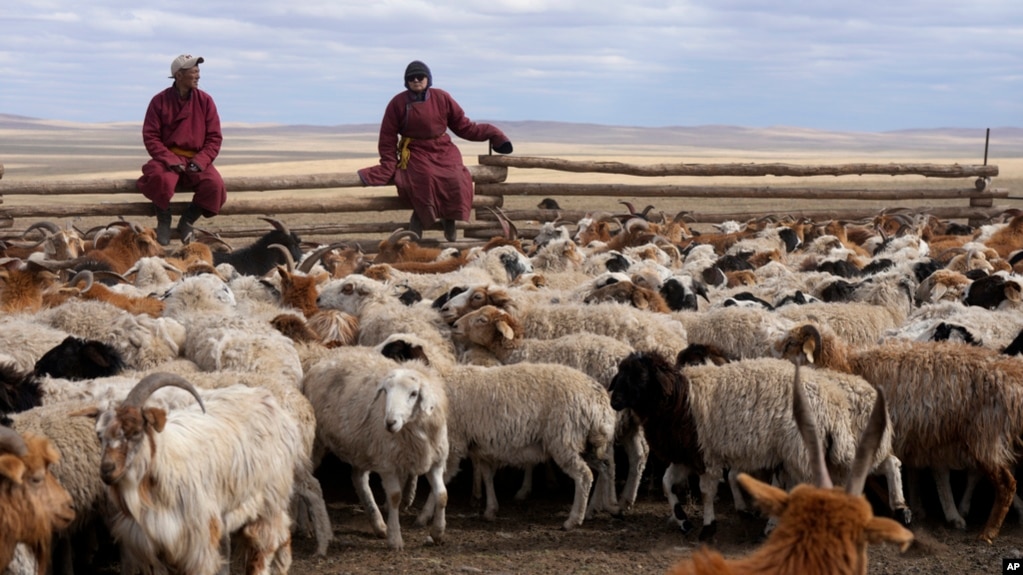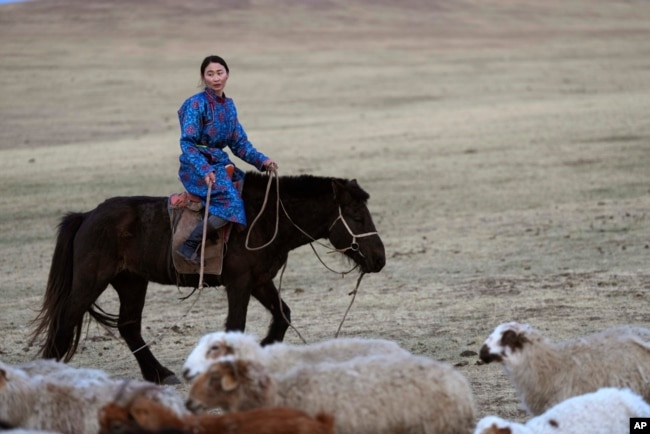AUDIO
Pastoralists Modernizing to Deal With Climate Change, New Lifestyles

More than 50 million people in Asia, Africa, the Middle East and elsewhere follow pastoralism as a way of life. They keep animals and move with them to find lands from which their animals can eat. They often sell some of their animals as meat also.
Pastoralism has supported these populations for much of history. But it faces pressure from worsening environments, reductions of pastoral lands, and new generations who seek a less difficult life. At the same time, pastoralism is modernizing, with groups using new technologies.
The practice has survived for so long because it is designed to change with the environment. Pastoralists move with animals to find new lands and water, leaving behind eaten plants to regrow.
Experts say pastoralism can teach those that keep animals in industrial numbers to change with the climate and reduce their effects on the environment. Pastoralists are not only trying to keep up with climate change; they are fighting it.
Mongolian herders
Mongolia is well known for its pastoralism. The practice is even included in the nation’s constitution. It calls its 80 million animals, including camels, yaks, cows, sheep, goats, and horses, as “national wealth” protected by the state.
Agvaantogtokh and his family are herders. On horseback, he rides with nearly a thousand sheep and goats to help them find water. Sometimes, he and his wife, Nurmaa, stop to help struggling young ones, weak after a difficult winter.
For families like Agvaantogtokh’s, pastoralism is more than a profession. It is a cultural identity that connects generations. At its heart is the human connection to animals.
Agvaantogtokh and his family sell animals for meat. They also sell dairy products such as yogurt and hard cheeses. While they consider the animals as their property, they also see them as living beings working alongside them.
Researchers say herders believe in “animal agency.” Agvaantogtokh lets his animals choose the food they eat and where they find water. To him, restricting an animal’s movement and asking it to eat the same thing each day is like putting a person in prison.
In Mongolia, weather extremes are a part of life. When Agvaantogtokh thinks about climate change, he is concerned about humans and animals.
Continuous dry and warm weather affects Mongolia. Since 1940, the government says, average temperatures have risen 2.2 degrees Celsius. Dzuds – natural disasters special to Mongolia caused by dry weather and severe snowy winters – have grown harsher and happen more often.
A dzud pushed Agvaantogtokh and his family to move out after a disastrous winter killed 400 of their animals.

FILE - Nurmaa, the wife of herder Agvaantogtokh, rounds up their sheep, in the Munkh-Khaan region of the Sukhbaatar district, in southeast Mongolia, Saturday, May 13, 2023. (AP Photo/Manish Swarup)
Ancient practice, new methods
To keep their practice alive, pastoralists seek ways to modernize.
In Mongolia, Lkhaebum recently began using a small vehicle to more easily search for horses. The family uses electricity and has other technologies including a television and clothes washing machine. They also use a cellphone to follow the weather and access social media where herders share information.
One of the biggest threats to pastoralism comes from within, as the next generation chooses other paths.
Nurmaa and Agvaantogtokh’s 18-year old daughter studies medicine. Their son spoke about becoming a herder when he was a child, but not anymore.
“I won't regret anything if my child won't be a herder,” Nurmaa said. She added, “I would like them to do what they aspire to do.”
Words in This Story
pastoralism – n. livestock raising
herder – v. to gather and move (a group of animals)
diary – n. milk or food made from milk (such as ice cream, cheese, or yogurt)
harsh – adj. having an unpleasant or harmful effect because of great strength or force: too intense or powerful
aspire – v. to want to have or achieve something (such as a particular career or level of success)
https://learningenglish.voanews.com/a/pastoralists-modernizing-to-deal-with-climate-change-new-lifestyles/7362900.html